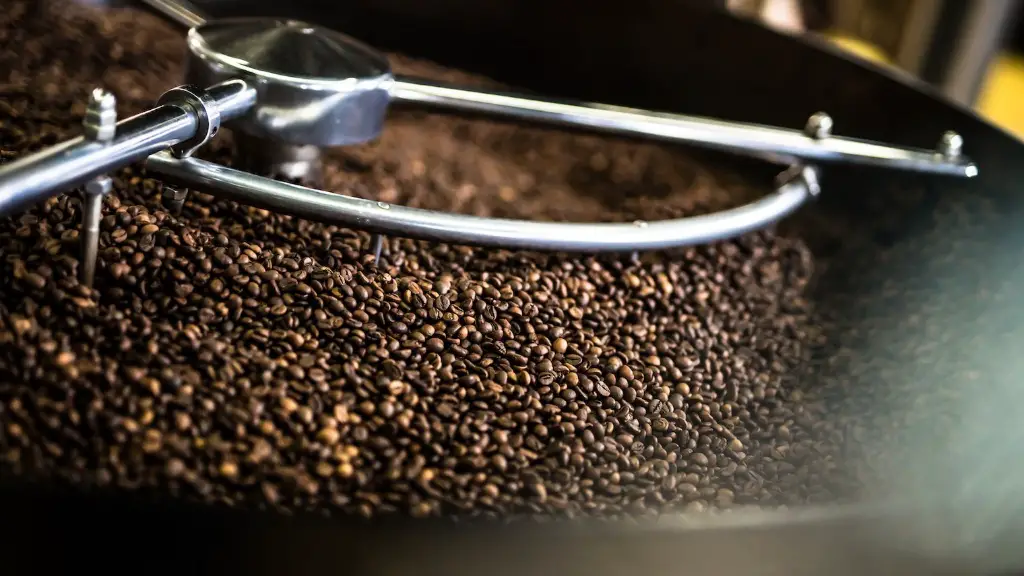Breastfeeding is one of the most rewarding experiences for a mother and her baby. But if you’re a coffee lover, knowing how much decaf coffee you can drink while nursing may be top of mind. Recent studies have shown that moderate consumption of decaf coffee while breastfeeding is safe. However, like with anything in life, the key is moderation. Below we’ve outlined what you need to know and consider when it comes to drinking decaf coffee while breastfeeding.
Caffeine Content
Caffeine is the most researched stimulant and the primary active ingredient in coffee. It is readily absorbed through the stomach and small intestine, and can be found in the bloodstream just one hour after drinking a cup. Decaf has less caffeine than regular coffee and contains between 0-13 mg of caffeine, depending on the roast and brewing method. This is compared to a regular cup of coffee which usually contains anywhere from 95-165 mg of caffeine.
However, decaf doesn’t mean it’s 100% caffeine-free. Although the caffeine content of decaf is significantly lower than regular coffee, nursing moms should be aware that some caffeine does pass through the breast milk when ingested. It’s suggested that if you do choose to drink decaf coffee, avoid the more robust, dark roasts which tend to have higher levels of caffeine.
Caffeine Effects
Studies have shown that moderate levels of caffeine while breastfeeding are generally safe. However, be aware that too much of anything can be counteractive. Have you ever noticed how too much caffeine can make you jittery or unable to sit still? This is similar to what your baby can experience too. Babies’ systems are still developing, so too much caffeine through their breastmilk can cause them to become overly-stimulated and may affect their ability to sleep. Since sleep is so important for both mom and baby, especially during breastfeeding, it’s crucial to be mindful of your caffeine intake.
Coffee Alternatives
Not all mothers enjoy coffee, and some may be wondering what alternative beverages they can drink while nursing. There are loads of tasty, caffeine-free coffee-alternatives that can be enjoyed while breastfeeding such as herbal teas, decaf lattes, and chicory root coffee. If these don’t satisfy your taste buds, you can always go for a cool and refreshing smoothie. These can be made with a variety of ingredients such as fresh fruits, vegetables and dairy, which will be nutritious for both you and your baby.
Healthy Habits
If you enjoy indulging in a cup of decaf coffee, make sure you do it mindfully. Drinking too much decaf coffee (or any other sort of caffeine) can be distracting and make you feel dehydrated. To make sure you’re getting enough fluids, try and alternate each cup of coffee with a glass of water. This not only helps to hydrate you but will also make sure you don’t drink excess caffeine, which can have a negative effect on both your and your baby’s health.
Talk to your Doctor
Every mom and baby are different so always discuss your nutrition and breastfeeding habits with your doctor. Not only can they advise you on any safety concerns related to drinking decaf while nursing but they can also help in developing a healthy, sustainable diet plan. Your doctor may recommend cutting down on caffeine while nursing, or they can suggest an alternative source of energy if you’re feeling fatigued.
Babies and Sensitivities
It’s good to keep in mind that some babies can be more sensitive to caffeine than others. If your baby seems overly fussy or displays the symptoms of caffeine ingestion – like insomnia, restlessness and irritability – then it might be a sign to reduce the amount of decaf coffee you’re drinking, even if it’s minimal.
Healthy Alternatives to Coffee
If you’re finding it hard to manage your coffee cravings while nursing, try some of the healthy alternatives that are discussed above. Eating a nutritious balanced diet and exercising regularly are also great ways to keep your energy levels high and your cravings at bay. Try to get at least 7-8 hours of sleep per night and drink plenty of water throughout the day. All of these habits can help you stay refreshed and energized while you’re nursing.
Time of Day
The most sensible and safe approach when it comes to drinking coffee and breastfeeding is to try and keep it as light as possible and avoid drinking coffee of any kind too close to bedtime. The American Academy of Pediatrics and the Canadian Paediatric Society suggests that two to three hours should pass between nursing your baby and drinking caffeine. This will ensure that your baby is getting enough rest and their blood caffeine levels don’t reach a dangerous level.
Lifestyle Considerations
When it comes to drinking decaf coffee while nursing, it’s important to consider how this fits into your overall lifestyle. If you’re already drinking a lot of decaf coffee, then you may have to make some lifestyle adjustments to make sure this doesn’t start negatively affecting you and your baby’s health. Additionally, if you’re finding it hard to drink less decaf then you can also try snacking on foods that contain caffeine such as dark chocolate and dark-roast coffee beans – but just don’t over do it!
Weight Management
When it comes to breastfeeding and weight management, drinking decaf coffee can have both pros and cons. Although it’s not a good idea to rely on decaf coffee to make up for a lack of sleep or healthy eating, studies have shown that drinking decaf coffee can help increase post-workout energy levels and may potentially help with weight loss. On the downside, depending on what type of milk you put in your coffee and your sugar content, too much decaf coffee can add unwanted calories to your diet.
Caffeine-Free Beverages
You don’t have to give up your caffeine drinking habits entirely when nursing. But make sure to choose caffeine-free or decaf beverages and watch your caffeine intake. Don’t be afraid to experiment with a variety of beverages. Some popular caffeine-free options include herbal teas, fruit juices and smoothies, probiotic drinks and coconut water.
Listen to Your Body
At the end of the day, it’s really up to you and how much decaf coffee you want to drink while breastfeeding. Every mom and baby are different so listen to your body, pay attention to your baby’s reactions, and speak to your doctor if you have any doubts. If you’d like to enjoy a cup of decaf coffee while nursing, make sure you’re not overdoing it by sticking to a few cups per day and alternating them with a glass of water.



